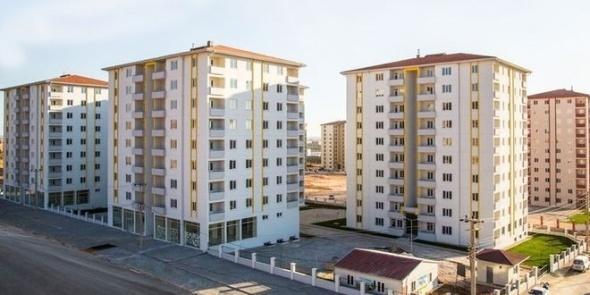‘Chain’ sales-buying model copes with mortgage issues
Duygu Erdoğan – ISTANBUL

Despite a slight slowdown in housing prices, the ongoing increase in momentum and the difficulty in obtaining loans, which is the most important factor in accessing housing, lead consumers to a “chain” sales-buying model.
Because they cannot access enough credit amid the high prices, those who want to renovate their house buy a new house by selling their old house and adding their savings to this money.
This system also creates a chain trading model for real estate agents.
Real estate experts, have stated that the market has been turning in this way in every segment for a while, especially facilitated access to credit; however, they also emphasized that this should not be done in a drastic way that will bring a new upward effect on housing prices.
According to data by the Turkish Statistics Institute (TÜİK), house sales in Türkiye decreased by 25.3 percent in October compared to the same month of the previous year and became 102,660. Mortgaged house sales, on the other hand, decreased by 53 percent in October compared to the same month of the previous year and were at 13,268.
The share of mortgaged sales in total housing sales decreased to a low of 13 percent. Housing loan interest rates of private banks range from 2.05 percent to 3.75 percent monthly. While the public banks continue to provide mortgages with a monthly interest rate of 1.20 percent, the upper limit for such loans is 300,000 Turkish Liras.
Sühran Aras, the vice president of the Real Estate Services Professional Committee of the Istanbul Chamber of Commerce (ITO), and also a luxury housing expert, noted that “chain transactions” are increasing, and people generally choose to sell their houses to buy a new one.
He added that the loan opportunities are insufficient despite the increase in housing prices.
“An average three-bedroom flat on Istanbul’s Bağdat Street is sold for a minimum of 15 million liras, and there are houses up to 40 million,” he said.
“However, banks impose a very large limitation on loans. There is little to no mortgage sales, almost all purchases are cash. To meet this cash, a chain transaction is made. We sell the customer’s house, then we buy the house he wants,” he added.
Türkiye’s Banking Regulatory and Supervision Agency (BDDK) with a regulation published in June brought a loan utilization rate according to the value of the houses and their energy class. Accordingly, the credit value ratio for brand new houses with energy class A is 90 percent for houses with a house value of less than 2 million liras, 70 percent for those with a value between 2 million liras and 5 million liras, and a maximum of 3.5 million liras for those with a value between 5 million liras and 10 million liras. The limit for mortgages for such houses is 10 million liras.
“The BDDK decision already imposes a limit on the loan, but other than that, access to loans is difficult,” said Hakan Akdoğan, the founding president of All Entrepreneurial Real Estate Consultants (TÜGEM).
“In addition, it is difficult to buy with cash as housing prices have increased so much. The decrease in mortgage sales also shows this. A support is needed in terms of housing finance. In order to buy a house in the market, the purchases made by selling the house and adding on it stand out. In this respect, it is seen that the deficit is high not only for investment but also for need.”
Reminding that a new mortgage regulation is needed, Ankara All Real Estate Agents’ Professional Chamber President Hakan Akçam said that a new wave of increase in housing prices should be avoided without lowering loan interest rates too drastically.
“A private bank recently lowered the interest rate and removed the cash limit, this gives us hope for the days to come,” Akçam said.
“It is difficult to get a loan, so the number of people who sell their old house and add to it if they have either credit or cash and move to a new house is high,” he said.
















